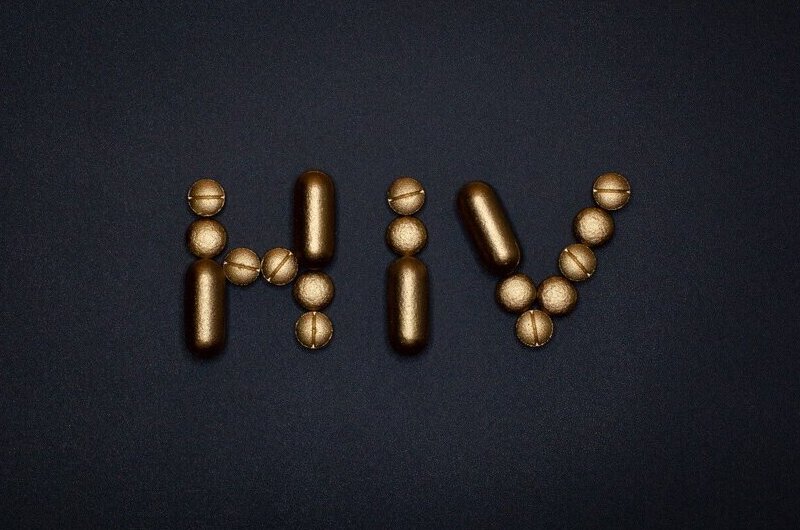
The Importance of Global Health in Protecting American Interests
In a world that is increasingly interconnected, the health of people in other countries directly impacts the safety and well-being of Americans. Diseases such as HIV do not respect national borders, and the spread of untreated HIV in one region can pose a risk to U.S. citizens. This reality underscores the importance of global health initiatives in safeguarding public health both domestically and internationally.
Changes in U.S. Policy Under Trump's Administration
The Trump administration introduced several changes to U.S. global health policy that have raised concerns among experts and public health advocates. One significant shift was the America First Global Health Strategy, announced by the U.S. Department of State in September 2025. This strategy aimed to make "America safer, stronger, and more prosperous" by encouraging other governments to take responsibility for their citizens' health while promoting U.S. commercial and faith-based interests.
The plan included a commitment to purchase and distribute lenacapavir, a breakthrough HIV preventive drug, for up to 2 million people—primarily pregnant and breastfeeding women—in 10 countries heavily affected by HIV. However, this initiative has been criticized for not addressing the needs of the most vulnerable populations who require access to HIV care.
Disruption of PEPFAR and Its Consequences
One of the most significant impacts of the Trump administration's policies was the disruption of the President's Emergency Plan for AIDS Relief (PEPFAR), one of the most effective foreign assistance programs in U.S. history. Since its inception in 2003 under President George W. Bush, PEPFAR has saved an estimated 26 million lives and played a crucial role in reducing HIV deaths by 70% since 2004.
However, on January 20, 2025, President Donald Trump signed an executive order that paused funding for all foreign aid programs, including PEPFAR. This decision led to the shutdown of PEPFAR-supported clinics, halted medical shipments, and resulted in mass layoffs of the global HIV workforce. The dissolution of USAID further undermined PEPFAR's ability to function effectively.
The consequences of these actions have been severe. It is projected that the disruption will cause 4.1 million additional deaths and 7.5 million new HIV infections by 2030. These numbers highlight the devastating impact of cutting critical health programs.
Limitations of the New HIV Prevention Strategy
The Trump administration's new global HIV prevention strategy focuses primarily on preventing mother-to-child transmission of HIV. While this is an important goal, it overlooks the needs of other vulnerable populations, such as sex workers, people who use injectable drugs, men who have sex with men, transgender individuals, prisoners, and their sexual partners. These groups account for 55% of new HIV infections globally and face significant barriers to accessing care due to stigma, discrimination, and legal challenges.
Legal pushback allowed limited parts of PEPFAR to restart, but access to HIV medication was restricted to only pregnant and breastfeeding women. This exclusion leaves many at-risk individuals without the necessary support and treatment.
The Role of Community-Led Initiatives
Community-led initiatives have historically played a vital role in addressing HIV. Peer-to-peer support networks have been instrumental in connecting vulnerable populations with essential services. However, the Trump administration's strategy shifts focus away from these community-driven efforts, favoring government health care workers instead.
This approach raises concerns about the quality of care provided to marginalized communities. Many individuals living with or vulnerable to HIV distrust government-run facilities due to past experiences of discrimination, mistreatment, and lack of confidentiality. Research shows that fear of repercussions, such as arrest, violence, or loss of employment, further deters people from seeking care.
Faith-Based Organizations and Their Impact
The new strategy also reallocates funds to faith-based organizations, citing their potential reach through religious leaders. However, some of these organizations have been associated with anti-LGBTQ+ stances and discriminatory practices. For example, conservative evangelical groups have supported punitive laws against homosexuality in countries like Uganda, where HIV remains a major public health challenge.
These organizations often fail to provide the inclusive and non-judgmental care that vulnerable populations need. As a result, many at-risk individuals avoid seeking help due to fear of stigma and discrimination.
A Unique Approach to HIV
Effectively addressing HIV requires more than just medical treatment; it demands a comprehensive approach that considers the social, psychological, and structural factors affecting vulnerable populations. Unlike other diseases, HIV disproportionately affects adults and adolescents, requiring interventions focused on sexual health and harm reduction.
The Trump administration's strategy consolidates efforts across four diseases—malaria, polio, tuberculosis, and HIV—without accounting for the unique needs of each population. This one-size-fits-all approach may not be effective in addressing the specific challenges faced by those at risk of HIV.
A Healthy World Benefits Everyone
While the countries that benefited from PEPFAR may seem far from U.S. soil, their health issues are closely tied to American interests. In an interconnected world, global health crises can have far-reaching economic and societal consequences. The initial HIV crisis and the COVID-19 pandemic serve as reminders of the importance of global health security.
Ensuring that people worldwide receive appropriate HIV treatment and care supports U.S. national security, diplomatic, and economic interests. A healthy global population fosters economic stability and strengthens international partnerships. Ultimately, a healthy world contributes to a more prosperous, peaceful, and stable world for everyone.